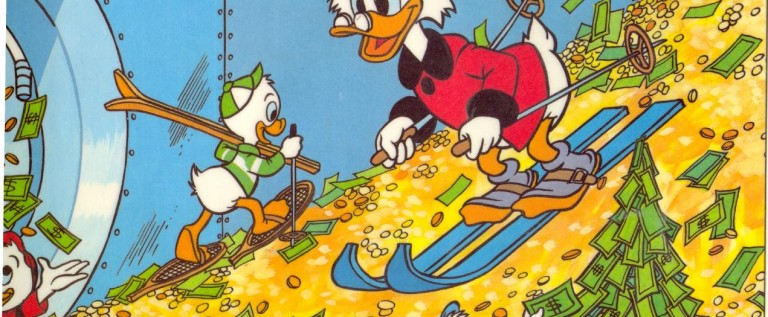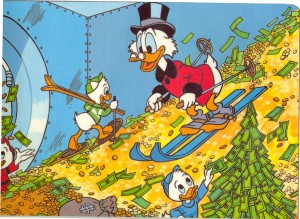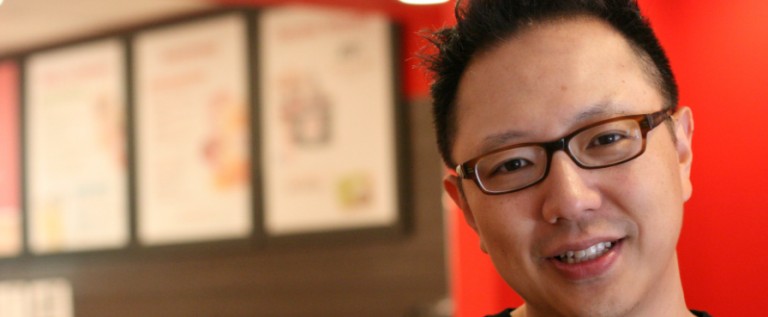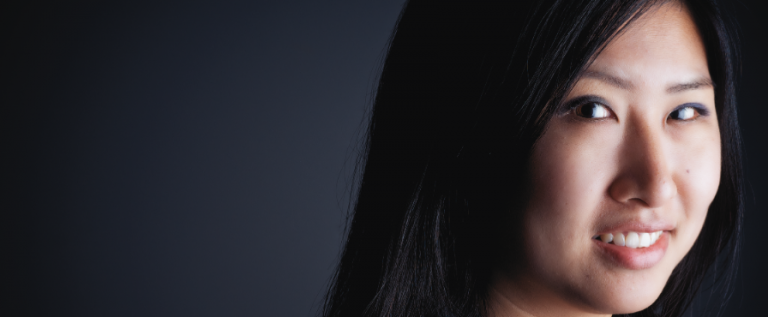The Plunge: Finding Career Happiness

Recently I’ve been sought out by a number of people for advice about career planning, entrepreneurship, and happiness. Honestly, it’s strange for me to be giving advice on these topics given that they’re based upon what I view as minimal experience and success. Ultimately, I don’t think that I’ve figured everything out – far from the truth. But I can say without flinching that with each move in my career I’ve become happier and happier because I’ve followed a few key tenants, because of the people in my life, and also because of some dumb luck. Given the number of inquiries I’ve gotten, I thought it would be appropriate to share some of what I’ve learned and what others have shared with me about creating a successful career. This is nowhere near an exhaustive list, so I’d love to hear what other things you might add. You can comment below or tweet me at @changg with the hashtag #theplunge
- Don’t know what you want to do when you grow up? So what? From a very young age, we’re taught to ask ourselves “what do I want to be when I grow up?” Firefighter? Doctor? President? While it’s important for everyone to have goals and ambitions, I don’t believe for a second that any of us should or need to have an end-goal cemented for our careers no matter how old you are. For my part, I have no idea what I want to be doing 20 years from now and over time I’ve found that what I want today could be very different from what I want a year from now. Take Chris Van Gorder, President and CEO, Scripps Health Care (name?) and President of the American College of Healthcare Executives. Twenty-five years ago he was a police officer. Then he got shot, was hospitalized, and discovered that he had a passion for health care. He took that passion, worked his butt off, and went on to become a hospital executive. While I hope it doesn’t take a bullet for you to realize what your calling is, the point is that if you’re true to yourself and what you love, then your calling will one day… well, call you. But if you haven’t found your calling yet, then there’s no need to despair. Just so long as you abide by the rest of this list.
- Do What You Love. At an earlier stop in my career I met a colleague, Robert, who was many years my senior and on the face was extremely happy. He was a sales executive at a Fortune 100 company, had a loving family, great salary, and company car. One day, I was at lunch with him and some of our colleagues, all of whom were my parents’ age. My employer had come forth with two attractive job offers that would mean relocation, raise, and a tremendous career opportunity. In weighing my options (nerd alert: I put together a decision-making matrix in excel with different categories, scores, and weighted averages), Robert blew up my entire framework. He asked me if I loved selling food. I shrugged. Then he told me a story about a man who was about my age who decided to take a lucrative sales job instead of going into considerable debt to go veterinary school and do something that he loved – take care of animals. He told himself that when he had saved enough money and established a certain lifestyle for his wife, then he would go to vet school. But as time went on, the realities of life took over, and he had responsibility for taking care of his wife, children, and parents. He never got to do what he loved and he always regretted it. The story Robert told me was about him. Realizing that I didn’t love selling food, I declined the promotion a few days later and decided to pursue a career in healthcare administration.
- Always Be Closing. This Glengarry Glen Ross inspired one is pretty simple. Always work hard and deliver
 results. Even if you don’t like what you’re doing. I know. Your job sucks. And what does it matter if you’re going to pursue something different entirely in your next job? Well, no matter how much you hate your job, there’s always something to be learned. The skills that make people successful transcend industry or occupation. Plus, it’s a small world, and you never know what impact impressing someone might have for you later on.
results. Even if you don’t like what you’re doing. I know. Your job sucks. And what does it matter if you’re going to pursue something different entirely in your next job? Well, no matter how much you hate your job, there’s always something to be learned. The skills that make people successful transcend industry or occupation. Plus, it’s a small world, and you never know what impact impressing someone might have for you later on. - Relationships Matter Above All Else. This one in particular can be difficult for Asian Americans to truly internalize because of the collectivist cultures that we come from. Culturally, we’ve been taught to work hard and produce results, but the importance of relationships cannot be overemphasized. As the old adage goes, it’s not what you know, but whom you know. This is true to a certain extent as you can’t be a well-connected idiot and do well in life (actually, I can think of a few). But a marginally less qualified individual with great contacts will always get the job because they have others vouching for them. In business, people want to work with people they’ll enjoy and who they know. Or at least someone who has a mutual friend. Plus, very few people ever achieve anything great without help. So, say yes to those happy hour drinks, find mentors who are at where you want to be, build a network of advocates, advocate for yourself when appropriate and pay-it-forward with your relationships.
- My Equation for Professional Happiness. This one is complicated and I’m still trying to balance the equation out. But, if you can find a career where you love what you do (#2), you’re good at what you do, you can make a decent living, and you help others through your occupation, then to me you’ve reached professional nirvana. Right now, being the CEO of a pre-funded startup is not the most lucrative line of work, but I love what I do and hopefully we’re helping others. Of note, I know a lot of people who are too singularly focused on making money. While not having any money will certainly make you miserable, having a Scrooge McDuck vault full of gold coins won’t necessarily mean that you’re happy. My two cents is to try and put more focus on other parts of the equation.






Pingback: Blueprint Beginnings - ALIST Magazine